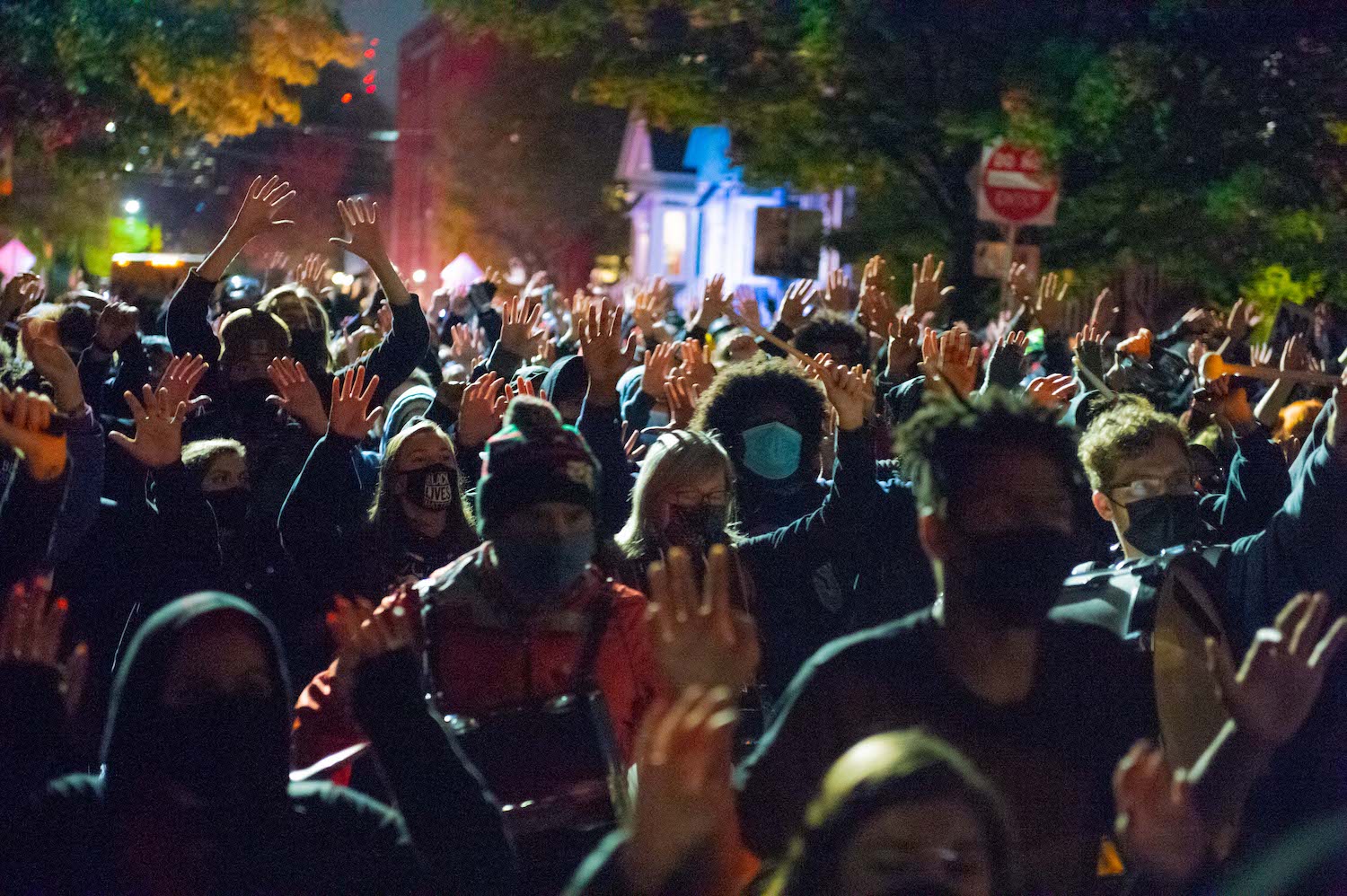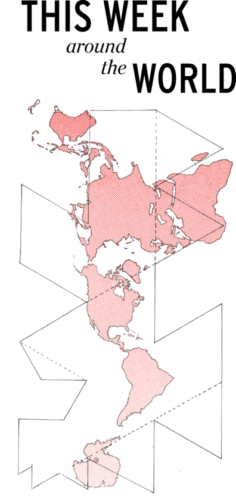November 1 Philippines: Typhoon Goni made landfall in the Philippines with sustaining winds up to 195 mph. Although the typhoon missed a direct hit to the country’s capital, Manila, 16 people were confirmed to have died from the typhoon in the Bicol region, southeast of Manila, according to The New York Times. The typhoon, known in the Philippines as Rolly, was the strongest tropical cyclone to make landfall in world history and the fourth to hit the Philippines in the last three weeks. Relief organizations have estimated that between 80–90% of houses were damaged on the island of Catanduanes, where Goni first made landfall. Civil defense officials in the Philippines estimated that 370,000 people have been displaced due to damages. “This typhoon has smashed into people’s lives and livelihoods on top of the relentless physical, emotional and economic toll of COVID-19,” said Richard Gordon, the Philippine Red Cross chairman as reported by The Guardian.
November 1 Minsk, Belarus: Over 200 protesters were arrested when tens of thousands took to the streets to demand President Alexander Lukashenko step down. Police also fired warning shots into the air and used stun grenades toward protesters, according to Reuters. This has been the 12th straight week of protests in the Belarusian capital. The European Union later placed sanctions on Lukashenko and his son for their actions to repress the protests. These sanctions block travel visas, freeze assets in member states and forbids EU citizens and companies from lending to them.
November 4 Tigray, Ethiopia: In response to an attack on a federal military base by regional troops in Tigray, Ethiopian Prime Minister Abiy Ahmed sent troops and declared a “military confrontation.” Ahmed blamed the region’s ruling party the Tigray People’s Liberation Front (TPFL) for the conflict. Tensions have been rising between the two parties since Abiy’s party took power in 2018 following decades of the TPLF being Ethiopia’s dominant party. “This war is the worst possible outcome of the tensions that have been brewing,” said William Davison, International Crisis Group’s senior analyst for Ethiopia, according to AP News. “Given Tigray’s relatively strong security position, the conflict may well be protracted and disastrous.”
November 5 Guatemala: Following torrential rains from hurricane Eta, over 100 people are believed to have been killed in a landslide in Guatemala City. Guatemalan search groups reached the mountainous area and began the search for bodies on Friday. The teams were forced to spend over half a day walking to the site after being forced to abandon their vehicles due to blocked roads and broken bridges. The effects of the landslide adds to the death toll of 65 already known in other Central American countries, including 23 in Honduras. “There are at least 20 to 25 homes totally destroyed,” said Francisco Muss, a retired Guatemalan army general who has been coordinating rescue efforts, according to The New York Times. “125 lives have been lost in this disaster. They are gone.”
November 7 Abidjan, Côte d’Ivoire: Opposition leader and former prime minister, Pascal Affi N’Guessan, was arrested for creating a rival government following the re-election of President Alassane Ouattara. N’Guessan and other opposition leaders are facing terrorism charges. Following the election on Oct. 31 that many opposition leaders deemed uncredible, protests have occurred that often turned violent. As of three days after the election, opposition leaders said that at least 30 people had died in election related violence. The United Nations reported following the election, over 3,200 people had become refugees, hoping to escape the electoral violence.





